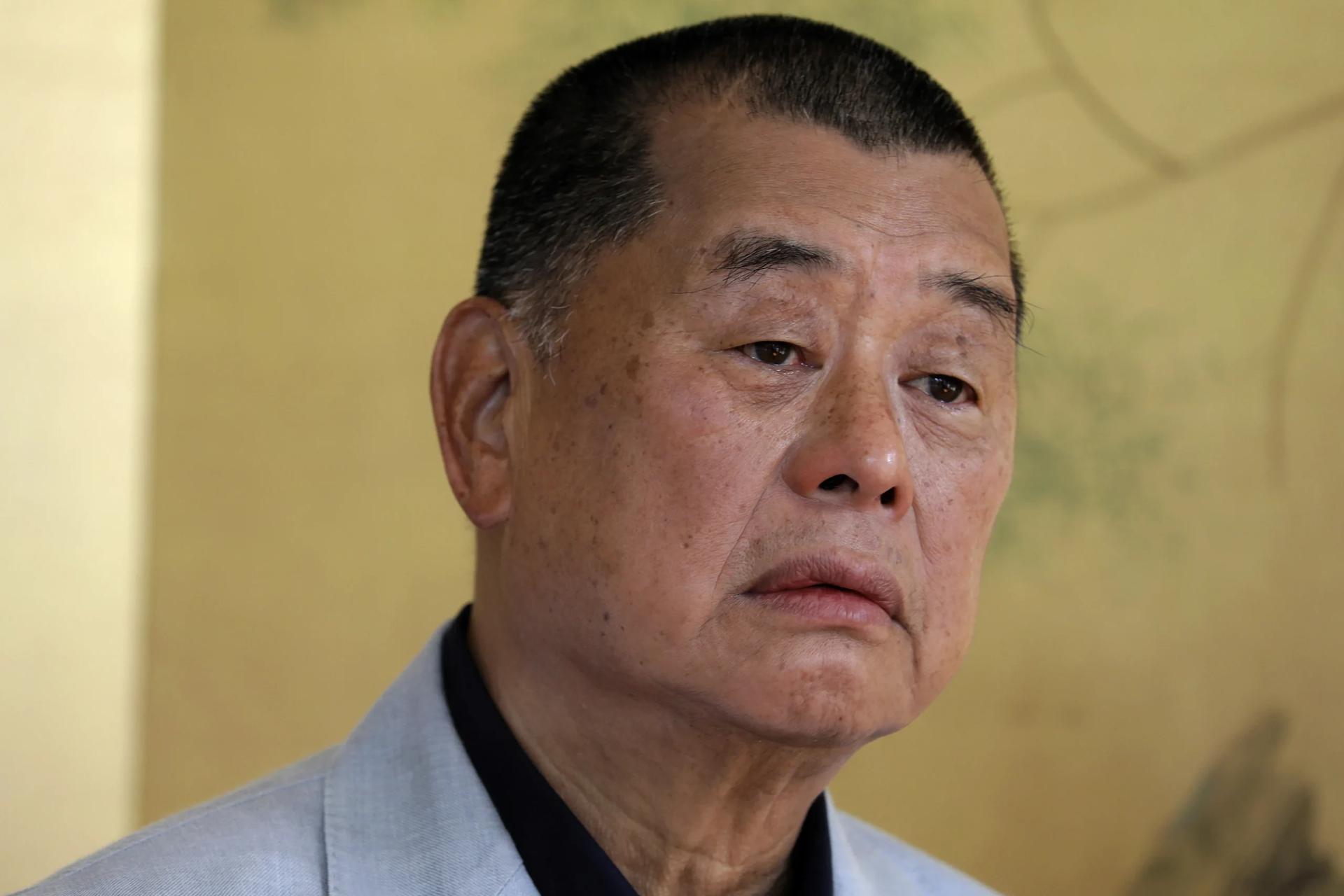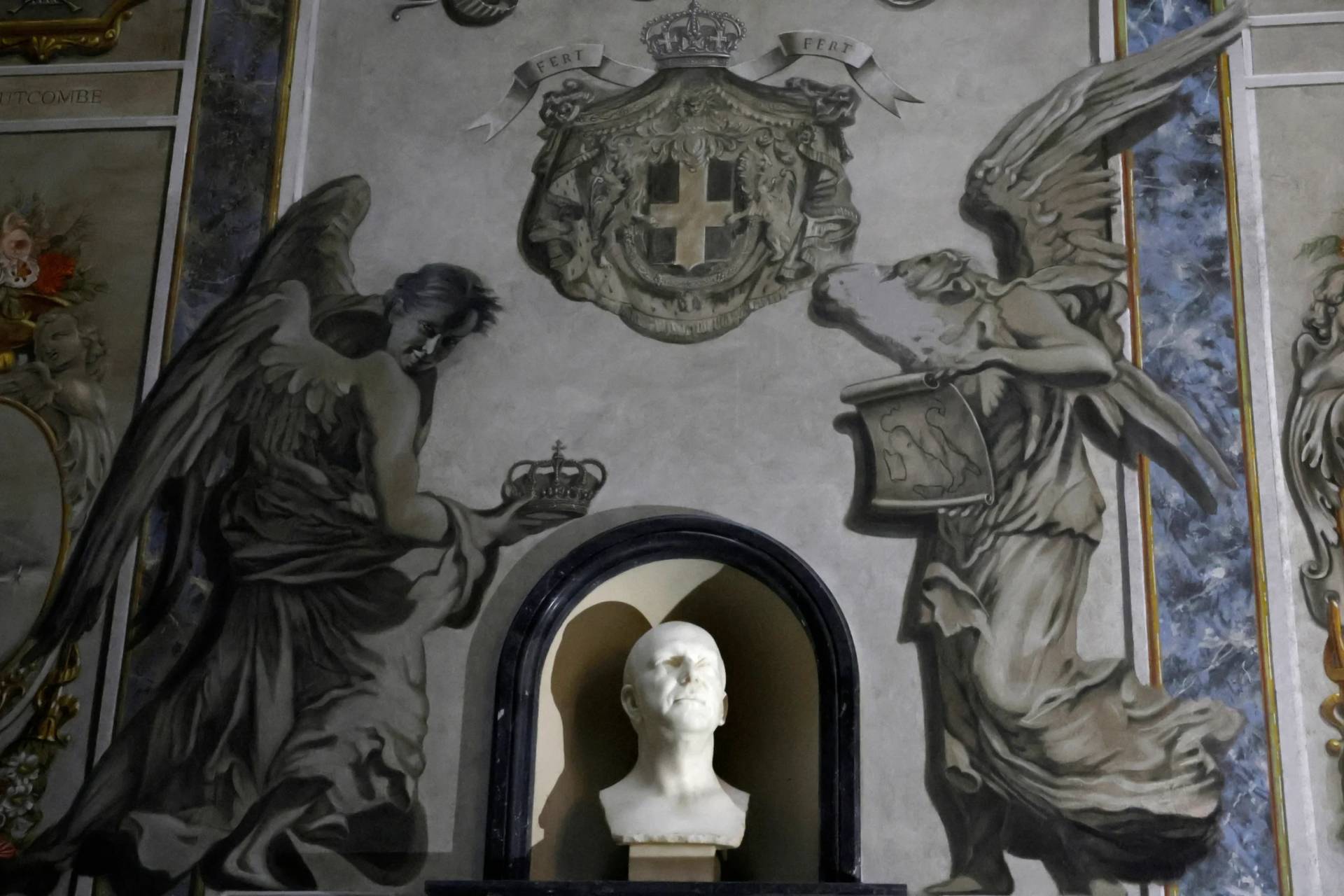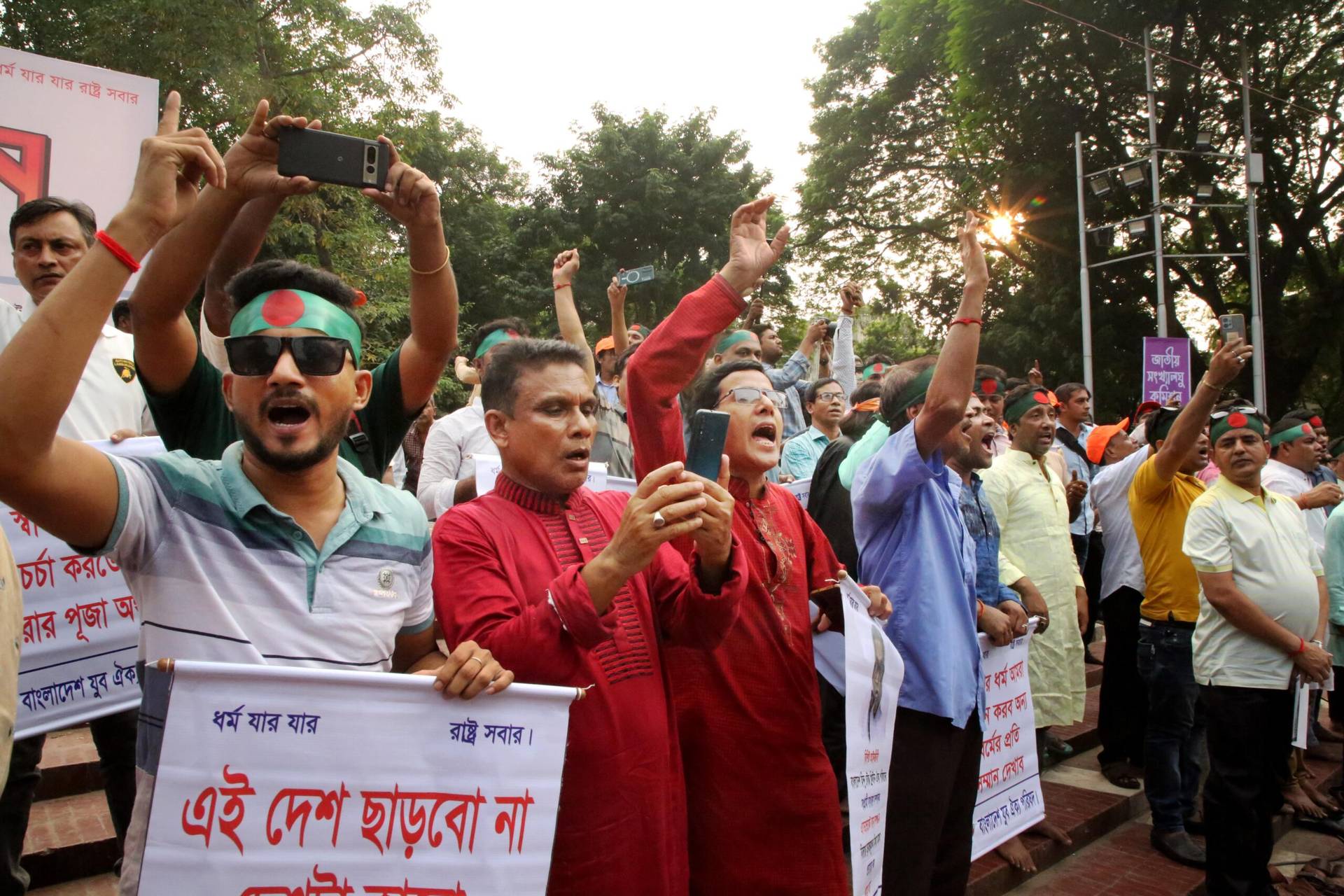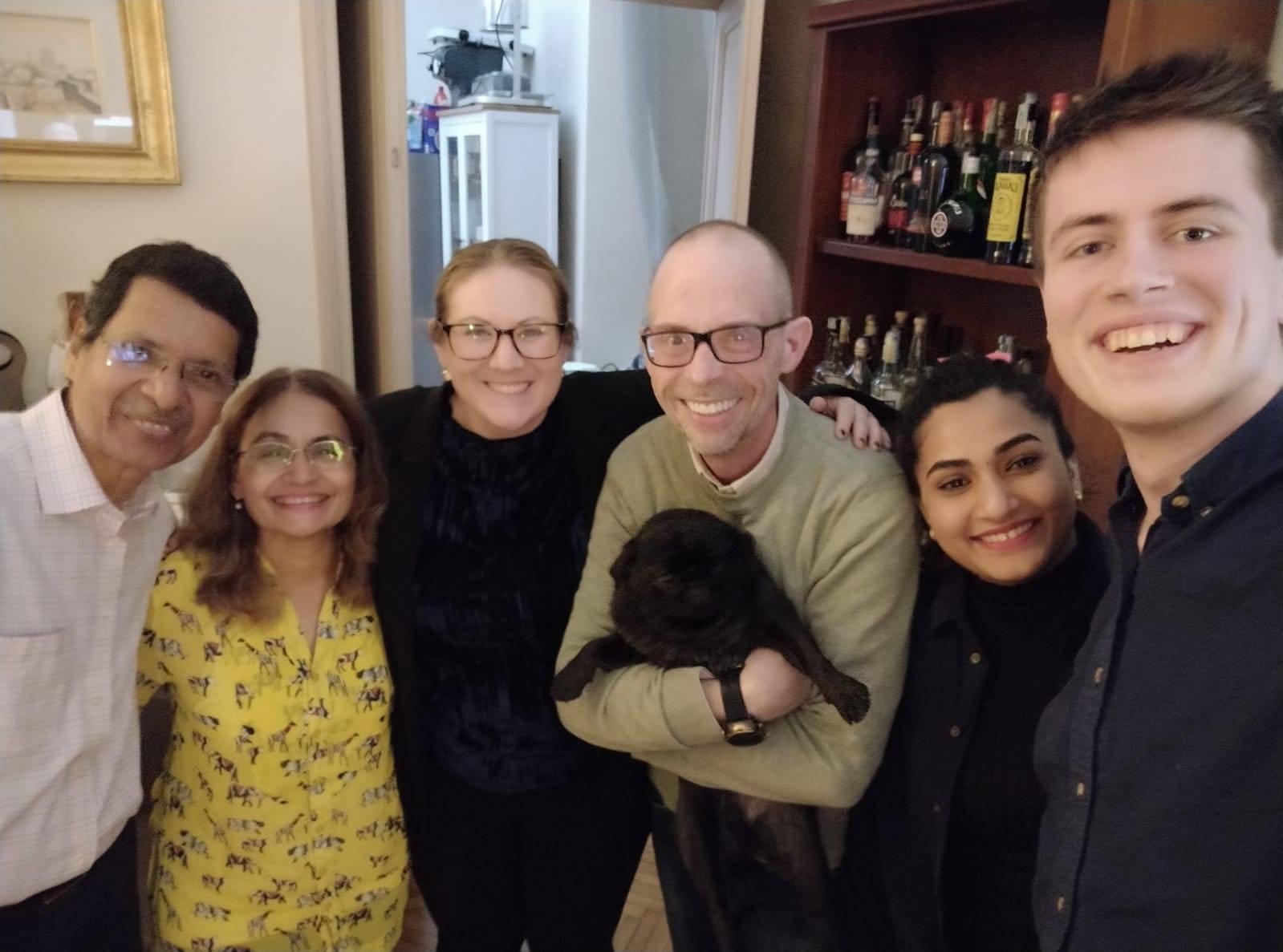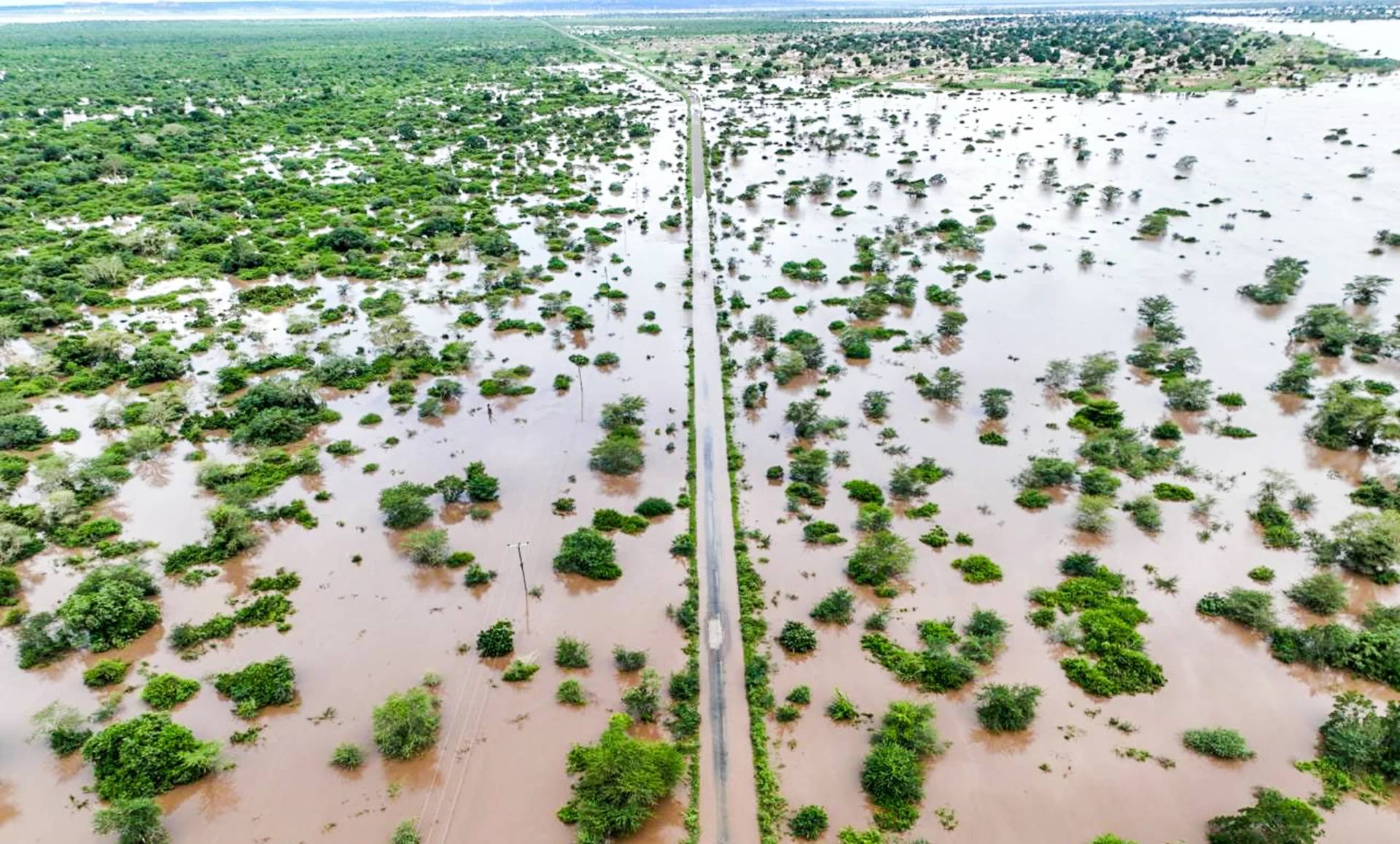The trial of a democracy activist in Hong Kong on charges of collusion with foreigners and seditious activity was delayed – again – on Friday, due to concerns over the defendant’s health.
The defendant is 77-year-old Jimmy Lai, a Cantonese native who reached Hong Kong as a stow-away and began working in a garment factory before rising through the ranks, becoming a manager, and then buying his own factory before pivoting to newspaper and magazine publishing.
Closing arguments were to begin Thursday, but an impending typhoon caused the scheduled hearing to be postponed by one day. Lai’s attorneys told the court their client was experiencing heart palpitations, after which Lai was examined and the hearing moved to Monday.
Lai’s rags-to-riches story and principled stand for press freedom are not the only things that make him a compelling figure.
He is also a practicing Catholic who holds a British passport, and is the only one of seven senior officers at Lai’s now defunct Apple Daily newspaper holding out on charges they conspired with foreign forces to threaten Chinese national security.
Six other former Apple Daily officers entered guilty pleas on conspiracy charges in 2022, but Lai pled not guilty and chose to face a trial that could see him given a life sentence.
The charges were brought under a national security law passed for Hong Kong in 2020, which gave the government of the former British colony sweeping powers to arrest, prosecute, and punish behavior authorities deemed to support secession, subversion of authority, and collusion with foreign or external forces. The 2020 law also broadly defined terrorism as the use of violence or intimidation.
Hong Kong’s government is widely believed to be controlled by the Communist government of mainland China in a way that violates the spirit if not the letter of the “one country, two systems” arrangement established when control of the island passed from Britain to China in 1997.
The national security law under which the charges against Lai have been brought, was passed in 2020, in the wake of sustained pro-democracy protests that earned a forceful response from authorities. The protests garnered intense international attention, and the crackdown received broad condemnation.
In July of 2020, Pope Francis made headlines for several days after he omitted remarks regarding the Hong Kong crisis, which was then ongoing. Vatican beat reporters were momentarily stymied. We had received advance copies of the pope’s Angelus remarks, so we knew what he had planned to say, but could not report what he in fact did not say.
No explanation of the omission ever came, and the spin machines across the spectrum of opinion kicked into overdrive.
Whether Francis made a last-minute decision on his own, or whether he allowed himself to be convinced discretion was the better part of valor, or whether there was some other explanation, remained unanswered.
For what it’s worth, Francis’s decision to omit the remarks – which were fairly anodyne, I may say – only after the draft text containing them was distributed to accredited journalists, all but guaranteed they would leak. When they did leak, his concern over the situation on the island reached the public.
The way his concern reached the public, however, may have spared him some of the cost of making a controversial public statement just before the Vatican’s 2018 agreement on the appointment of bishops was up for review.
The agreement on the appointment of bishops – the terms of which have never been fully disclosed by either party – was renewed for two years in 2020 and then renewed again in 2022.
The essence of the agreement appears to give China a say in naming bishops to Chinese posts with the Vatican having some right of approval over Chinese choices, in exchange for China’s recognition of the pope as head of the Catholic Church, effectively ending a schism that had developed in the wake of China’s 1949 Communist revolution.
In 2024, the parties renewed the agreement for four years, meaning the agreement will be up for renewal again in 2028.
With the trial of Jimmy Lai nearing conclusion and tensions in Hong Kong still high, Pope Leo XIV has more runway, and perhaps therefore a little more leeway, should he choose to say something about the affair.
Jimmy Lai has been in jail for more than 1,600 days, most of it in solitary confinement according to his attorneys, who say he has not been allowed to receive independent care for diabetes and has been denied Holy Communion.
The bishop of Hong Kong, Cardinal Stephen Chow, has been tight-lipped about the trial. Asked by the National Catholic Register in late 2024 whether Chow would be joining a public statement of support for Lai, the diocesan spokesman responded, “As the matter is still in judicial proceedings, the Diocese of Hong Kong has no further reply. However, Cardinal Chow prays that Mr. Lai, a brother in Christ, be at peace.”
